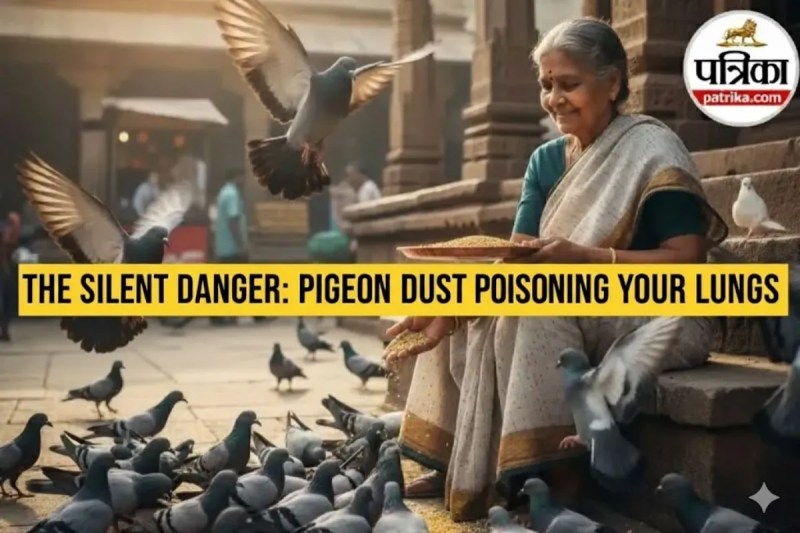
Pigeon Poop Lung Disease: While most people in India consider feeding pigeons a virtuous act, often seen in parks, temples, and public spaces, doctors have issued a serious warning about this habit. The fine dust particles from pigeon droppings can prove extremely harmful to the lungs. Recently, cricket commentator Harsha Bhogle also appealed on social media, urging people to "stop feeding pigeons. Doctors have been warning for a long time that pigeon droppings can enter the lungs through breathing and cause dangerous diseases."
Yes. When pigeon droppings dry, they turn into dust that becomes airborne and is inhaled. This dust gradually accumulates in the lungs over time, potentially leading to serious illness. Pulmonologist Dr. Manav Manchanda explains, "Every year, many people fall ill due to contact with pigeons." He states that the fine dust particles from pigeon feathers and droppings can cause a condition called Hypersensitivity Pneumonitis. This condition slowly damages the lungs and can progress to severe stages like lung fibrosis.
Sometimes, people fail to realise that pigeons are the cause of their persistent cough, shortness of breath, or fatigue.
Dr. Hemant Kalra explains that while pigeons may appear harmless, they actually pose significant health risks. Contact with them can lead to the following symptoms: persistent cough and difficulty breathing, flu-like symptoms such as fever and chills, weakness and fatigue. Prolonged exposure can cause permanent lung damage, and in severe cases, even lung failure.
Hypersensitivity Pneumonitis (Bird Fancier’s Lung): Allergic reactions to pigeon dust and droppings can cause inflammation and scarring in the lungs.
Fungal Infections: Fungi present in pigeon droppings, such as Histoplasmosis and Cryptococcosis, can be extremely dangerous for individuals with weakened immune systems.
Dr Manchanda suggests some simple preventive measures. Wear a mask and gloves when cleaning areas frequented by pigeons. Never sweep dry droppings; first, wet them with water to prevent dust from becoming airborne. Install screens or nets on windows to prevent pigeons from entering homes. Wash your hands thoroughly if you come into contact with pigeons or their droppings. If you experience shortness of breath, fatigue, or chest pain, seek medical attention immediately.
Published on:
15 Oct 2025 10:30 am
Big News
View AllHealth
Trending
Lifestyle

